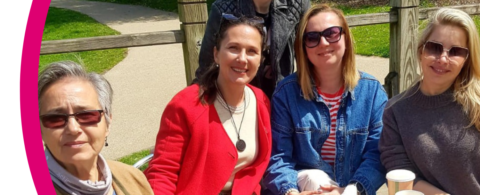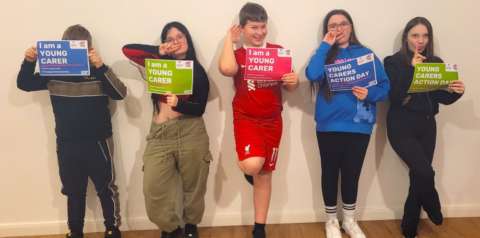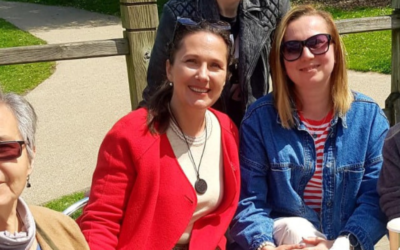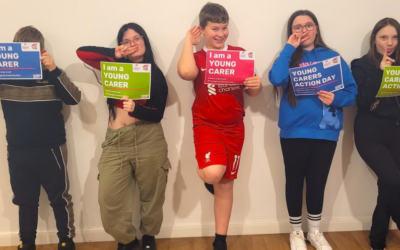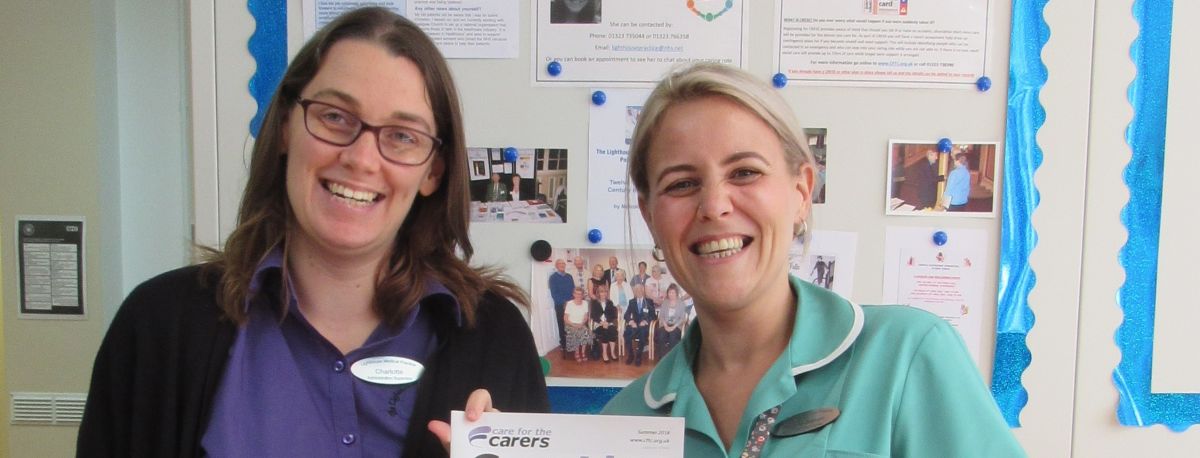
How GP surgeries can help unpaid carers
We all need to visit a GP at some point, whether it is as a carer for someone you care about, or for your own wellbeing.
Read here about some examples of local medical practices that have been putting systems in place to try to support and signpost unpaid carers to the help that’s on offer in East Sussex.
It’s of great benefit to you as a carer and to the care system in general if all staff at medical practices are aware of how to identify if someone is an unpaid carer. This is because many unpaid carers can be unaware of the assistance and benefits they are entitled to as part of their caring role. Having someone in a surgery setting acknowledging the hard work the carer does can make all the difference to a someone in a caring role – turning what might have been a bad day into a good day.
Case study 1: The Lighthouse Medical Practice, Eastbourne
The Lighthouse Medical Practice operates across two surgeries in Eastbourne. Here, Lighthouse’s Associate Practitioner and Carers Lead, Pauline Barron, explains the initiatives the practice has put into place, and is currently developing, to help ensure it’s as carer-friendly as possible, and crucially, that patients and staff are aware of all the carer-related initiatives in action at the surgery.
Noticeboards – Our Patient Forum looks after our notice boards. At our College Road surgery we have a carer information display, and are in the process of replicating that at our Ian Gow site.
Carer Forms – I have created two carer forms, one for adults and one for young carers, to gather information about their caring role, so that we can keep an up-to-date carers register and to support our carers, signposting them to other agencies who can help them. These are tweaked regularly based on feedback from patients about any useful points that should be included or clarified. For example, we have recently adjusted the form to note if a carer is retired or not. Without the retired option we would get regular comments that a person is retired, not unemployed. We ask if a carer is working so that we can inform them that they have rights and certain benefits they might be able to claim as a working carer, and to contact organisations such as Care for the Carers to find out more.
Carer Template – this is an internal template for our staff to use to transfer the notes to our system after a patient has submitted a carer form.
Website – The plan for our website is to have a ‘Carer’ tab, so that patients can access information from us, download carer forms, and see our carer policy.
Care summary – After submitting a carer form, we update the patients’ record on our system. This means that if they have consented to their care summary being shared and were taken ill elsewhere, professionals would know the patient is a carer and of any medical information like allergies, medication they are taking and so on.
CRESS – We like to encourage our patients to have a Carers Respite Emergency Support Service (CRESS) plan in place should anything happen to them.
We ask the patient to let us know the details of their plan so that if necessary the surgery could call Adult Social Care in an emergency situation. Find out more about how to set up a CRESS plan, and apply for a Carers Card.
Carer Training – I work closely with my colleague Charlotte at the Practice, and we have encouraged all surgery staff to attend internal training, so that we can cascade any new carer-related information to all staff members. We hope to arrange a Carer Awareness Training session with Care for the Carers soon, and we have carer awareness as an ongoing agenda item at our regular monthly reception and nurse meetings.
Patient Forum – we have a named Carer Lead within our Patient Forum. The Carer Lead also attends our flu clinics to help spread the word about our support for carers and to encourage people to identify and register themselves with us as a carer. The Patient Forum had a young carers focus recently and its quarterly newsletter will feature an article or information about carers in each issue. For example, a recent newsletter contained an article about the CRESS card.
Posters on doors – For Carers Week I put notices on all the doors in the building, rather than confining the information to the noticeboards, which may not be seen by as many people. We noticed patients looking at them as they went through the doors, so because of that, and after positive feedback from members of staff, we decided that the posters are useful, so we have left them in place permanently for now.
Employer Policy for Carer employees – We are in the process of collating an internal policy for employees who are carers. Employers for Carers offers information about this and Care for the Carers can also provide some feedback.
Case study 2: Bird-in-Eye Surgery, Uckfield
Tessa Edwards, Practice Manager at Bird-In-Eye surgery explains how it encourages its staff to ‘Think carer’ within various aspects of their roles.
Working with staff – To help carers who are patients at our practice, Bird-in-Eye surgery staff undertake training within their ‘protected learning time’ (PLT). This ensures that new staff members gain a good understanding about what Care for the Carers is, and what it, as the carers centre for East Sussex residents, can offer to carers. Our health professionals are also advised how to refer carers to Care for the Carers for assistance.
We’ve appointed a dedicated staff member as a “Care for the Carers Champion”. They are the go to person for the administration team if they have any questions about carers. Staff are actively encouraged to contact Care for the Carers if they or family members are carers.
Getting noticed – To help grab the attention of people who may be carers, we put posters up in prominent spaces in the waiting area, and have a dedicated section of the website that contains information about Care for the Carers, and about caring in general.
We keep Care for the Carers cards in each clinical room and on the reception desk, so that they are at hand for clinicians to give to any carers or potential carers. We are lucky to have a very active and engaged Patient Participation Group – it has a Facebook page and on this we have promoted Care for the Carers to its members.
Care for the Carers also uses one of our rooms on a fortnightly basis to meet with carers. This helps us to build valuable relationships between carers, our staff and Care for the Carers support workers. Susanna from Care for the Carers attends our multi-disciplinary meetings (MDT) regularly. This helps us to share information about carers who have confirmed they are happy to be identified and direct referrals made.
Please contact Carole at Care for the Carers if you would like to make your GP Practice more Carer Friendly – we can help.
For more ideas about how to become a more carer-friendly medical practice, see ourCarer-friendly GP practice checklist.
Carers Clinics
A Carer Support Worker from Care for the Carers attends each of the 23 clinics we run across East Sussex. Carer Support Workers are specialists in carers’ rights, and here to support you – they meet face to face with carers at locations close to home for up to an hour. Please note that you will need to book in advance for most clinics, by calling us on 01323 738390.
Carers Action Plan
The Carers Action Plan announced by the government in May 2018 highlighted the need for quality standards for carers information and provision from GP surgeries.
More News
Careline Spring edition is here!
The Spring edition of Careline is now available. Careline is the magazine for everyone who cares for a relative, friend or neighbour in East Sussex who couldn’t manage without your help Your...
It’s Young Carers Action Day!
It's Young Carers Action Day and we are working to raise awareness of young carers across the county. There are around 15,000 young carers living across East Sussex who help look after a family...
East Sussex College ESports student fundraiser
Students on the Esports course at East Sussex College created and ran a gaming fundraiser on Thursday 22nd February, in aid of local young people who are caring. They raised funds and awareness...

